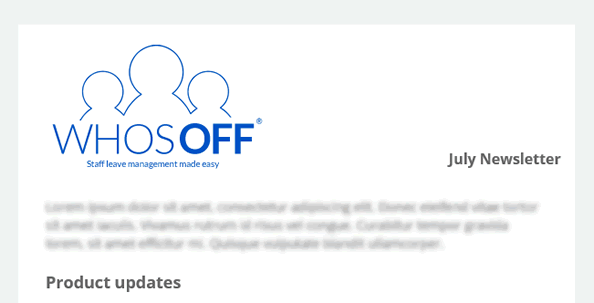1. What is the statutory annual leave entitlement in the UK?
In the UK, full-time employees working five days a week are entitled to a minimum of 5.6 weeks' paid annual leave per year, equating to 28 days. This can include public holidays at the employer's discretion.
2. How is annual leave calculated for part-time or irregular workers?Part-time employees receive a pro-rata entitlement based on their working hours. For instance, someone working three days a week is entitled to 16.8 days (3 days x 5.6 weeks). This figure should be rounded up to the nearest half-day.
3. Are agency workers and apprentices entitled to paid holiday?Yes, agency workers, casual workers, and apprentices are entitled to statutory paid holiday under UK law. However, self-employed contractors are not.
4. Can employers include public holidays in the annual leave entitlement?Yes, employers can choose to include public holidays within the 28-day statutory entitlement or offer them in addition. This should be clearly stated in the employment contract or company policy.
Booking and Managing Annual Leave
5. How should employees request annual leave?
Employees should follow their company's established procedure, which may involve submitting a request through a leave management system like WhosOff, thus saving time and money throughout the process. The process should be outlined in the company's annual leave policy.
6. Is there a notice period required for booking leave?Employers can set a minimum notice period for leave requests. While there's no statutory requirement, it's common to require notice twice the length of the intended leave (e.g., two weeks' notice for one week's leave).
7. Can employers refuse a leave request?Yes, employers can refuse a leave request if it's not feasible due to business needs. However, they must provide a valid reason and give notice equal to the length of the requested leave.
8. What happens if multiple employees request the same time off?Employers should have a fair system in place to manage overlapping leave requests, possibly on a first-come, first-served basis or by rotating popular holiday periods among staff.
Carrying Over and Managing Unused Leave
9. Can employees carry over unused annual leave?
Employees must take their statutory annual leave within the leave year. However, up to 1.6 weeks (8 days) can be carried over to the next year if the employment contract allows. Additional carryover may be permitted under certain circumstances, such as illness.
10. What strategies can employers use to manage unused leave?Employers can:
- Send reminders to employees about their remaining leave.
- Encourage early planning of holidays.
- Implement a 'use it or lose it' policy, clearly communicated in advance.
- Allow limited carryover of unused days.
Special Leave Considerations
11. What is Time Off in Lieu (TOIL)?
TOIL is compensatory time off granted to employees who work beyond their contracted hours. Employers should have clear policies outlining how TOIL is earned and used.
12. How is leave handled during company shutdowns?Employers can require employees to take annual leave during shutdown periods (e.g., between Christmas and New Year), provided they give appropriate notice, typically twice the length of the leave.
13. Are there rules for taking leave during peak periods like summer?Employers may implement restrictions during peak times to ensure adequate staffing. Clear communication and planning are essential to balance employee needs and business operations.
Developing a Comprehensive Leave Policy
14. Is it mandatory to have a written annual leave policy?
While not legally required, having a documented annual leave policy helps ensure consistency, clarity, and compliance with employment laws.
15. What should an annual leave policy include?An effective policy should cover:
- Annual leave entitlements and accrual.
- Procedures for requesting leave.
- Notice periods and approval processes.
- Carryover rules and limitations.
- Handling of leave during notice periods.
- Policies on TOIL and special leave types.
WhosOff offers a digital platform to streamline leave management, allowing for:
- Centralized tracking of leave requests and approvals.
- Customizable leave types and entitlements.
- Automated notifications and reminders.
- Integration with company calendars and HR systems.
Leave During Employment Changes
17. What happens to annual leave when an employee resigns?
Employees are entitled to be paid for any unused statutory leave accrued up to their leaving date. If they've taken more leave than accrued, employers may deduct the equivalent from their final pay, provided this is stipulated in the employment contract.
18. How is leave calculated for new starters?New employees accrue leave from their start date. For example, if someone joins halfway through the leave year, their entitlement is pro-rated accordingly.
Additional Considerations
19. Can employees change their holiday dates after approval?
Changes to approved leave are at the employer's discretion. Employers should consider the reason for the change and business needs before approving alterations.
20. What if an employee falls ill during their holiday?If an employee becomes ill during scheduled annual leave, they may request to convert the affected days to sick leave, provided they follow the company's sickness reporting procedures and provide necessary documentation.
Understanding and effectively managing annual leave is crucial for maintaining a productive and satisfied workforce. Employers should ensure their policies are clear, compliant, and communicated to all staff. By using WhosOff you can significantly streamline the process, reducing administrative burdens and enhancing transparency.
Get your FREE WhosOff Trial today and remove the adminstrative burden around leave management
Photo by Aksonsat Uanthoeng of Pexels.com

